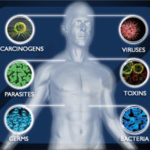-
Dr. Thierry Vrain, Former Genetic Engineer: Nutritional Status of GMOsDr. Thierry Vrain, former genetic engineer, soil biologist, and retired plant pathologist, gives an excellent talk on engineered food and your health, entitled the Nutritional Status of GMOs. “Over 500 million acres – with every cell of every plant containing antibiotic ...
-
We Won! Monsanto Ad has been Pulled from O MagazineWe have a Victory! Thank you to the many of you who signed the Petition to Oprah Winfrey and O Magazine to remove the Monsanto advertisement! The ad has been removed from the February and March, 2015 issues of O Magazine. In case you did not have time to read the text of the Petition, see below: ...
-
Oprah and O Magazine, Drop Your Monsanto AdWe are petitioning Oprah to drop the Monsanto advertisement in O Magazine. Please sign the Petition and share everywhere: Sign Petition here. To Oprah, from the many who have learned from you, been inspired by you to aim higher, try harder and to strive to be the best version of ourselves. You ha...
-
They are Targeting our Children: It’s Time to Fight Back!Food Integrity Now is an educational resource to raise awareness as to what is happening to our global food supply. The big food corporations’ mission is to create an overweight and unhealthy population with their sugary, chemical-laden products that have very little nutritional value̵...
-
Food Integrity Dining Guide: Send us your favorites!Food Integrity Now is in the process of creating a dining guide for the United States. We will be rating restaurants as to their food integrity, i.e. organics, non-gmo and locally sourced. We are in the process of interviewing restaurants and rating them. We will also provide some information as ...
-
Carol Grieve’ and Food Integrity Now Wins Cheers to Change Makers AwardApplegate sponsored a National contest and award for people making a difference in the food community. We are proud to have been one of the five to win this award. The other winners need to be acknowledged and they are: Tina Koral of The Gardenworks Project, Simone Bernstein of Volunteennation, ...
-
Food Integrity Now in 2014Happy New Year from Food Integrity Now. We are starting our year off with some great guests. In January, we will talk with Joel Salatin about his upcoming documentary, Polyface Farms, which is a model farm for sustainability and Dr. David Perlmutter will be joining us to talk about his best-sell...
-
`Tis the Season:You Don’t Have to Catch a Cold or the Flu!We have discussed the importance of avoiding GMOs and eating organic foods on many of our shows. This week, I have invited David Armstrong, M.Ac. (Acupuncturist), of Listening Heart Medicines to co-author this article with me on the importance of building a healthy immune system. This is an extr...
-
Health Alert: Radiation–It hasn’t just gone away!HEALTH ALERT by guest blogger, Linda Masterson, April 2, 2013 THE SITUATION: Hawaii, Alaska and the US West Coast, especially, but the entire Northern Hemisphere in actuality, are being exposed to high doses of radiation from the ongoing Fukushima Daichi situation in Japan. EFFECTS ON HUMANS: Th...
-
WELCOME!Welcome to the Food Integrity Now family! We are thrilled that you have taken the initiative to join us. Thank you for your dedication to the food justice and food integrity movement. We envision a healthy and sustainable world, with nourishing food where our body, mind and spirit can thrive. If...








